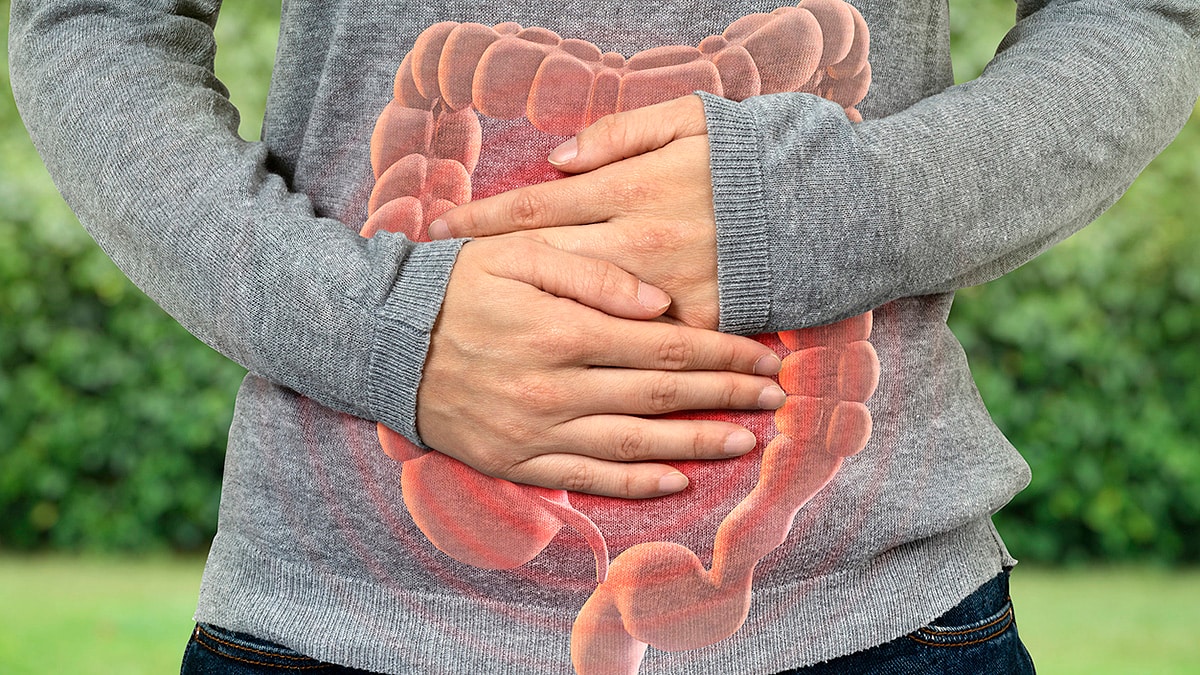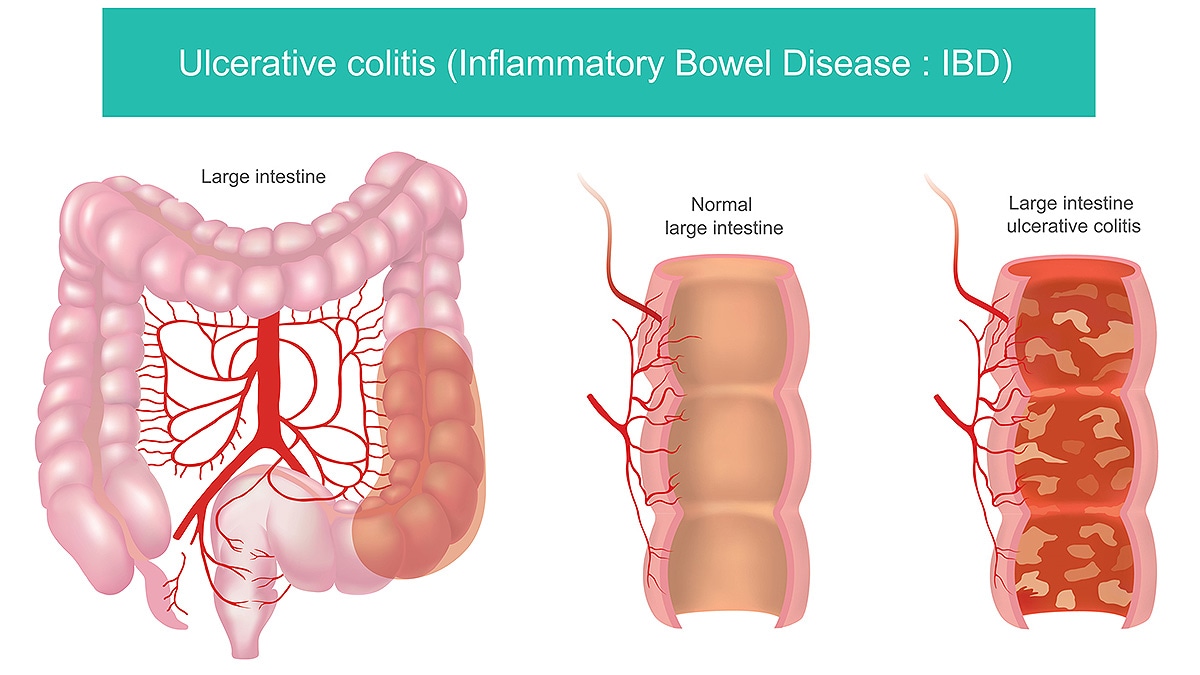Key points
- Ulcerative colitis (UC) is the most common type of inflammatory bowel disease (IBD).
- It affects the inner lining of the colon and rectum, causing complete damage to the lining.
- People with UC often experience blood or mucous in their stool (poop) and feel an urgent need to empty their bowels.
- Complications can be serious, but most people with UC can control their symptoms and lead active lives.

Overview
Inflammatory bowel disease (IBD) refers to a group of lifelong diseases that cause inflammation (swelling) of the intestine.
Ulcerative colitis (UC) is the most common type of IBD.
UC can impact a person's quality of life. But most people who have it can still lead active lives with long periods of remission.

How UC impacts the digestive tract
Inflammation from UC causes the walls of the colon to weaken. This wears away affected areas, creating open sores called ulcers.
- UC affects the large intestine, spreading up from the rectum through the colon (parts of the large intestine).
- UC only affects the inner lining of the colon. It does not reach through other layers of the intestine wall.
- It causes swelling and ulcers all along its path, leaving no healthy tissue.
Symptoms
UC symptoms
Many symptoms from UC also occur with other types of IBD, like Crohn's disease.
UC can also cause some symptoms that are not usually seen with other types of IBD. These include:
- Stool (poop) with blood or mucus, caused by ulcers.
- Stomach cramping with bowel movements.
- Urgent need to have a bowel movement.
Severity of symptoms
Symptoms usually come in waves, and can range from mild to severe, depending on the amount of the colon affected and how badly the area is damaged.
A rare form of UC, called fulminant ulcerative colitis, causes extremely severe symptoms. It requires urgent medical treatment.
Possible complications
UC can put people at increased risk of developing other health conditions.
Most complications also occur with other types of IBD. These require extra monitoring.
Contact your health care provider to discuss the risk of developing other conditions or if your symptoms change, worsen, or become persistent.
Emergency complications
The most severe complications generally stem from serious damage to the affected area (i.e., the colon and rectum).
These complications require immediate care and may become life-threatening:
•Severe dehydration. This can result from the colon's reduced ability to absorb water and from fluid loss during frequent trips to the bathroom.
•Severe bleeding from the rectum. This can happen when ulcers cause a lot of blood to pass from the anus during a bowel movement.
•Perforated (torn) colon. This can happen when ulcers and chronic inflammation cause a hole in the colon.
•Toxic megacolon. This is when inflammation spreads to the deeper tissues of the intestines, causing inflammation so severe the colon stops working.
If you think you are experiencing one of these life-threatening complications seek medical attention right away.
- Bruner LP, White AM, Proksell S. Inflammatory bowel disease. Prim Care. 2023;50(3):411–427. doi:10.1016/j.pop.2023.03.009
- Agrawal M, Spencer EA, Colombel JF, Ungaro RC. Approach to the management of recently diagnosed inflammatory bowel disease patients: A user's guide for adult and pediatric gastroenterologists. Gastroenterology. 2021;161(1):47–65. doi:10.1053/j.gastro.2021.04.063
- Rubin DT, Ananthakrishnan AN, Siegel CA, Sauer BG, Long MD. ACG clinical guideline: Ulcerative colitis in adults. Am J Gastroenterol. 2019;114(3):384-413. doi:10.14309/ajg.0000000000000152
